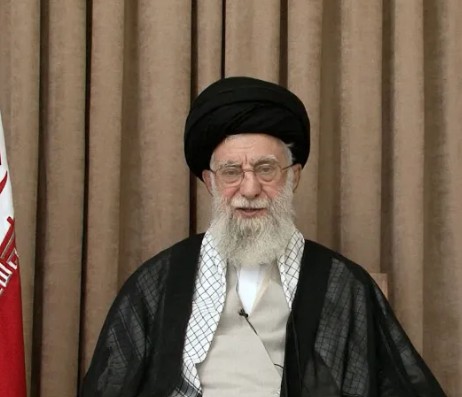Iran’s Supreme Leader Claims U.S. Attacks on Nuclear Sites Were “Ineffective”
Tehran — For the first time since the announcement of a ceasefire between Israel and Iran, Iran’s Supreme Leader Ayatollah Ali Khamenei has spoken publicly, sharply criticizing the United States and dismissing the effectiveness of recent Western-led military operations. In a televised address broadcast across Iranian state media on Wednesday night, Khamenei said that “the enemies of Iran, led by the U.S., have achieved nothing of value from their aggression.”
Khamenei’s comments come in the aftermath of a violent 12-day escalation between Israel and Iran, which saw missile exchanges, cyberattacks, and limited strikes on strategic infrastructure, including what U.S. officials claimed were Iranian nuclear development sites.
“The strikes on our nuclear and military sites were political theater loud but empty,” Khamenei stated. “The United States and its Zionist ally wanted to intimidate us, but instead, they have only exposed their desperation.”
U.S. Operation Faces Scrutiny
According to reports from Washington, the U.S. had coordinated with Israel during several precision strikes intended to “degrade Iran’s nuclear capabilities and deter future aggression.” However, satellite imagery and independent nuclear watchdogs have not confirmed any substantial damage to Iran’s major facilities in Natanz or Fordow.
U.S. Defense Department officials have remained tight-lipped following Khamenei’s remarks, but a Pentagon spokesperson earlier this week claimed that the mission was “limited and successful in its objectives.” The White House has not yet issued a formal response to the Iranian leader’s statements.
Ceasefire Holds Amid Fragile Tensions
The ceasefire, brokered with the assistance of European intermediaries and Qatar, has largely held over the past 48 hours. Regional analysts, however, warn that the situation remains volatile. Israel’s Prime Minister Yoav Gallant has stated that “any breach or provocation will be met with overwhelming response.”
On the Iranian side, the Islamic Revolutionary Guard Corps (IRGC) remains on alert, with military units still stationed near key border areas and strategic oil ports.
Internal Messaging and Regional Impact
Khamenei’s speech also served a domestic function. With rising economic pressure and public unrest within Iran over fuel prices and internet blackouts during the conflict, the Supreme Leader sought to reassure the population of the state’s resilience.
“Let the people know: our enemies failed not only militarily but morally. The resistance of the Iranian nation stands firm,” he declared.
Experts suggest Khamenei’s timing was calculated delivering his address after the fighting had ended, but before public sentiment could fully shift toward criticism of the government’s handling of the crisis.
The recent conflict has drawn international attention, reigniting fears over Iran’s nuclear ambitions and the potential for a broader Middle Eastern war. The United Nations has called for a full investigation into potential violations of international law on both sides of the conflict.



